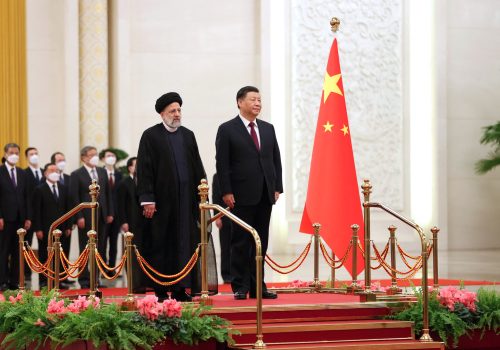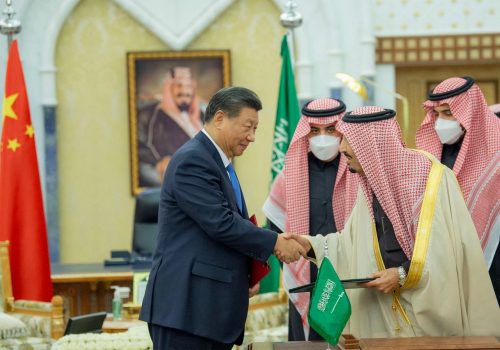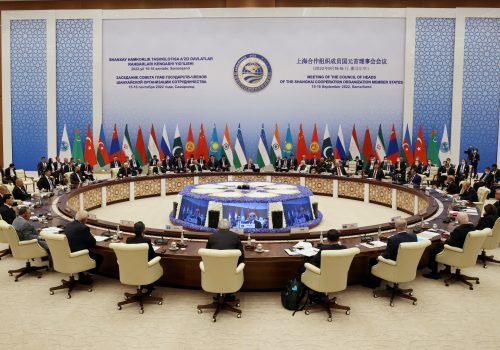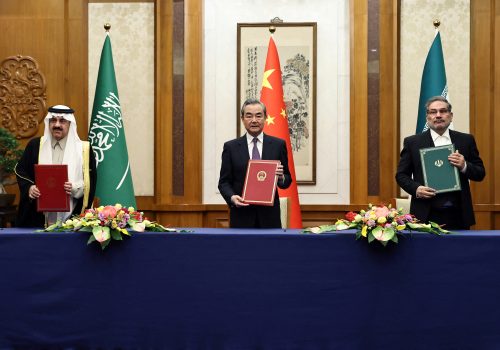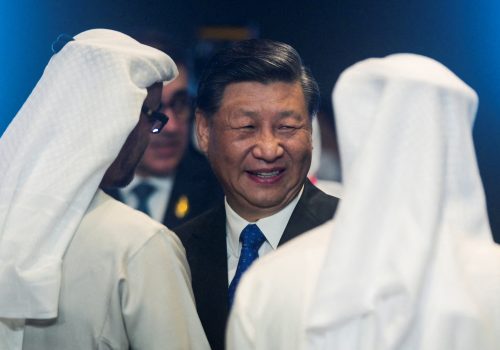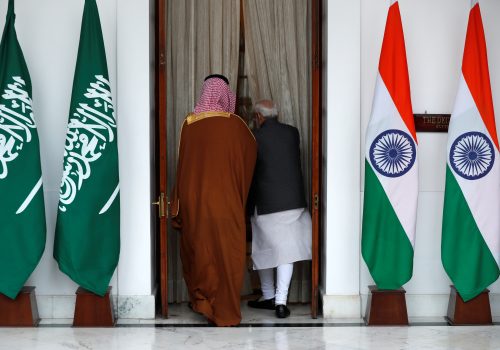China’s Role in Conflict Mediation in the Middle East
SUBSCRIBE TO THE CHINA-MENA PODCAST ON THE APP OF YOUR CHOICE
Key takeaways
- China’s Mediation Quest in the Middle East
- Craving China’s Role: Appetite for Involvement
- China’s Rise: Crafting a Responsible Power Image
- Non-Interference Story: China’s Investment Narrative
- Deep Dilemma: Skepticism on Complex Involvement
- Unfolding Potential: China’s Gradual Mediation Role
- Hope Amidst Doubt: China’s Complex Involvement
- Geopolitical Ambitions: China’s Shaping Influence
- Diplomatic Magic: China’s Outreach and Persona
- Economic Drive: China’s Role in Stability
Chapters
00:12 – Introduction
01:59 – Global Ambitions: Mediation and Geopolitical Dynamics
08:17 – Economic Engagement: China’s Rising Role
12:14 – Commitment Gaps: China’s Mediation Challenges
14:23 – Tensions and Uncertainties: China’s Role in Saudi Arabia and Iran
18:25 – Geopolitical Partnerships: China, Iran, and Saudi Arabia
22:51 – Limitations Unveiled: China’s Struggles in Conflict Mediation
27:29 – Global Reach: China’s Quest for Influence
31:52 – Unraveling Israel-Palestine Peace Plans
34:01 – Middle East’s Reaction to China’s Involvement
37:44 – GCC Tensions: China’s Priorities and Missteps
40:24 – Iran’s Concerns: Analyzing China’s Rising Influence
41:22 – Outro
In this episode
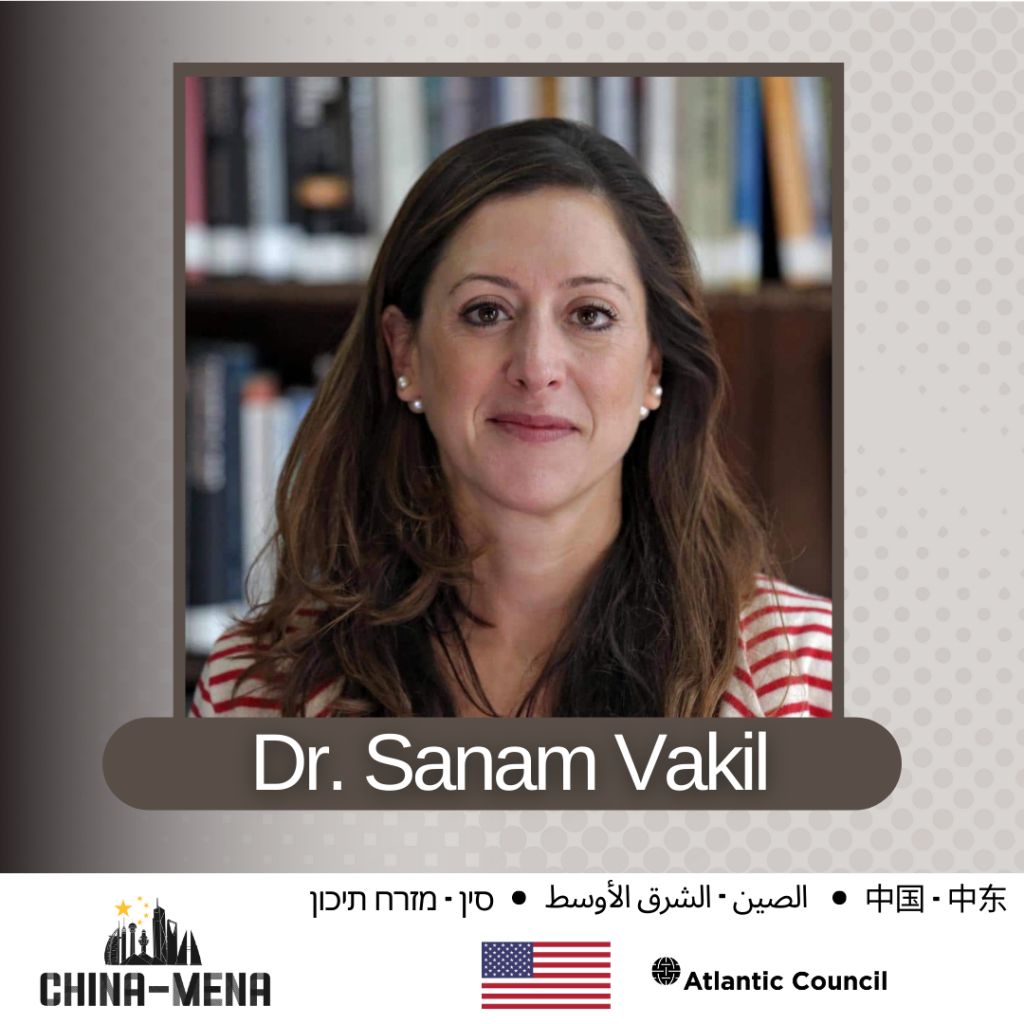
Sanam Vakil
Director of the Middle East and North Africa Programme
Chatham House
Dr. Sanam Vakil was appointed director of the Middle East and North Africa programme in 2023. She was previously the programme’s deputy director and senior research fellow, and led project work on Iran and Gulf Arab dynamics. Sanam’s research focuses on regional security, Gulf geopolitics, and on future trends in Iran’s domestic and foreign policy. She is also the James Anderson professorial lecturer in the Middle East Studies department at the Johns Hopkins School of Advanced International Studies (SAIS Europe) in Bologna, Italy. Before these appointments, Sanam was an assistant professor of Middle East Studies at SAIS Washington. Sanam is the author of Action and Reaction: Women and Politics in Iran (Bloomsbury 2013).
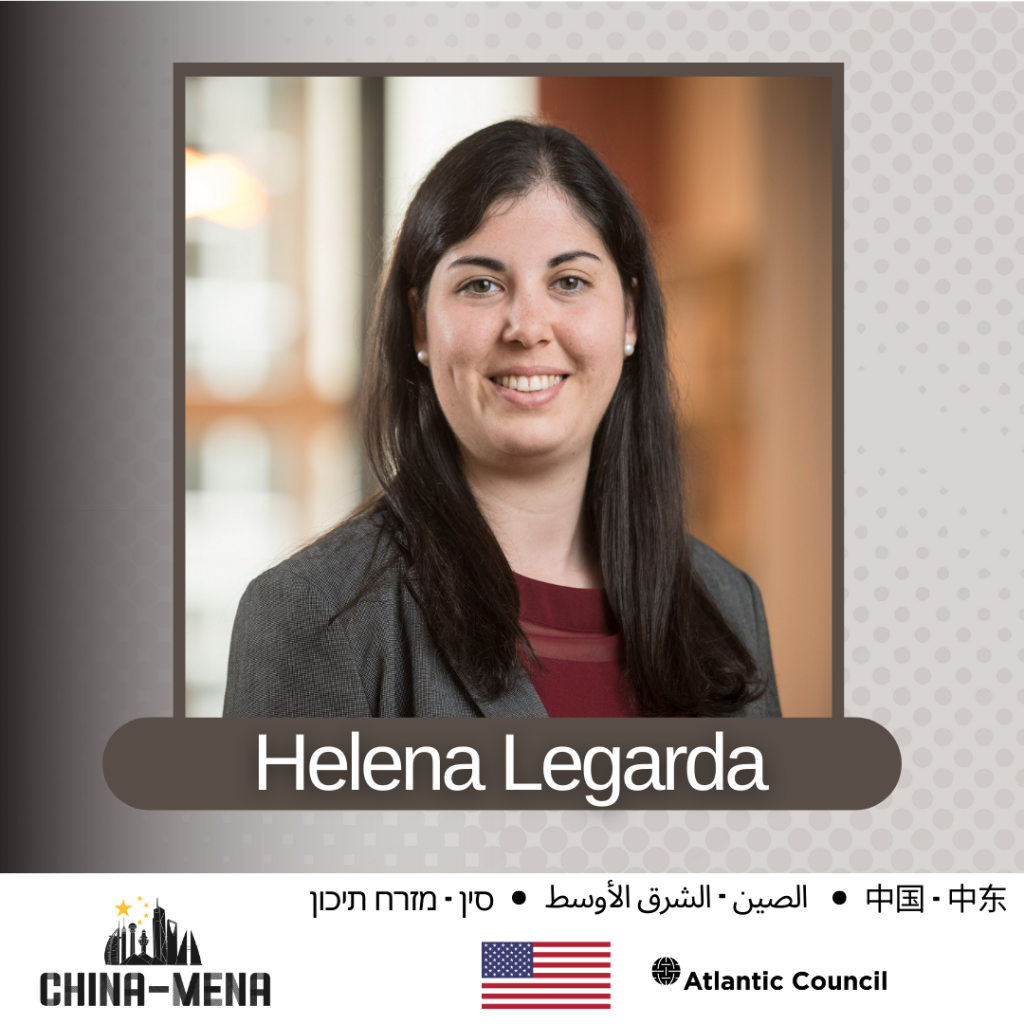
Helena Legarda
Lead Analyst
Mercatur Institute for China Studies
Helena Legarda’s research focuses on China’s defense and foreign policies, including their domestic sources and drivers, and their geopolitical impact. Prior to joining MERICS she gained professional experience at the Delegation of the European Union to China and at research and advisory firm China Policy in Beijing. Helena holds a Master in Public Policy degree with a focus on International and Global Affairs from the Harvard Kennedy School of Government and a BA in Chinese Studies from the University of Oxford. She also studied Chinese language at Peking University.
.
About
In this episode, we embark on a thought-provoking journey into China’s involvement in conflict resolution in the Middle East and North Africa. Your host, Jonathan Fulton, is joined by the insightful voices of Helena Legarda and Dr. Sanam Vakil. Together, they dissect China’s strategic approach to mediating conflicts and its consequential impact on the MENA region.
Amidst a landscape seeking fresh perspectives in conflict resolution, a pertinent question emerges: Can China wield transformative influence? As we navigate the intricate terrain, we invite you to delve into the nuances, obstacles, and potential avenues presented by China’s mediation role in this dynamic region.
Brace yourselves for an enlightening discourse that promises to reshape your vantage point on global politics.
Hosted by
Change awaits. Yet, for now, our reality is navigating these inner boundaries and encapsulated processes shapes our path forward
Bridging the ambition-action gap can reshape the region, inspiring meaningful dialogues and enduring resolutions
About the China-MENA podcast
The China-MENA podcast features conversations with academics, think-tankers, and regional specialists on Chinese Influence in the Middle East and informs US and MENA audiences in the policy and business communities about the nature of China’s outreach to the region.
At a time when China’s global footprint is getting deeper and deeper, it has never been more important to understand its foreign policy and the Middle East is one of the world’s most consequential regions: home to major religions, diverse cultural and social heritage, central to global energy markets, and of course, geopolitics, linking people and markets in Asia, Africa and Europe. This show will help you understand what China is doing in the region, and how the region is engaging with China as an increasingly important external power.
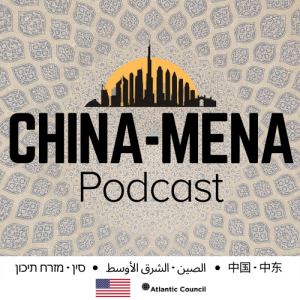
Podcast series
Listen to the latest episode of the China-MENA podcast, featuring conversations with academics, government leaders, and the policy community on China’s role in the Middle East.
Recommended reading
This podcast was funded in part by a grant from the United States Department of State. The opinions, findings, and conclusions stated herein are those of the author and do not necessarily reflect those of the United States Department of State.
Further reading
Thu, Mar 30, 2023
US Perceptions of China’s Middle East Presence
China-MENA Podcast By
Dr. Julian Gewirtz and Chris Backemeyer join us to provide unique insights from a US perspective on the potential implications of China's growing presence in the Middle East and its efforts to replace US dominance on global governance, as well as the priorities of the US in the MENA region.
Wed, Sep 6, 2023
Global Development Initiative and Global Security Initiative: China’s Blueprint for the New World Order
China-MENA Podcast By
Tuvia Gering and Michael Schuman shed light on the Chinese Communist Party’s approach and practical implementation tactics of Beijing's global development initiatives. They also examine Beijing's progress support, capacity building, and knowledge-sharing efforts—including global development centers and vocational training programs.
Tue, Feb 21, 2023
The Middle East in the US-India-China Strategic Triangle
China-MENA Podcast By
Raja Mohan joins us to discuss India’s role in geopolitics in the Middle East as well as the perspective of New Delhi on the influence of the US-China tug-of-war within the region, and provide some insights about maritime security in the Indian Ocean and the growing influence of mixed cultures in the Gulf.
Image: Iranian Foreign Minister Hossein Amir-Abdollahian (L) meets with his Saudi counterpart Prince Faisal bin Farhan Al-Saud at the Foreign Ministry.








